Fast, reliable remote internet services are in high demand as more people move away from expensive urban cities to work remotely in affordable rural towns. Internet usage in rural locations reached 68% last year,1 with around 80% of customers in these areas subscribing to speeds of 25 Mbps or greater.2 Despite this growing adoption, 66% of rural small business owners still say poor internet connectivity harms their business.
In this blog, we’ll explore the technologies allowing MSPs to deliver high-speed connectivity to businesses in rural locations, along with current remote area internet services trends and predictions.
What Emerging Technologies Support Rural Internet Adoption?
Several emerging internet technologies enable rural organizations to reap the benefits of high-speed connectivity. A few key technologies include:
High-Speed Broadband
Broadband services can help businesses in remote and rural areas overcome the challenges that come with other connectivity options. Setting up rural businesses with fiber can be costly, while more cost-effective solutions like satellite often suffer from performance and quality issues. Broadband is an affordable alternative that doesn’t compromise on quality or speed – and the right provider can engineer fixed wireless, fiber, or copper broadband solutions to keep your business connected for less.
Dedicated Internet Access
Businesses that rely on a steady internet connection for their daily operations can benefit from installing a dedicated internet access (DIA) connection. DIA solutions offer symmetrical speeds and dedicated bandwidth to ensure critical tasks like data transfer and real-time communications run smoothly. Additionally, they come with performance-backed SLAs for guaranteed service deliverability.
Wireless Transport
Connecting multiple offices or locations in rural areas can be challenging – especially if security is a concern. Wireless transport services provide a layer-2 network design that connects multiple locations without using unsecured external networks. It’s also more affordable and faster to deploy than alternatives such as multi-site LAN installations.
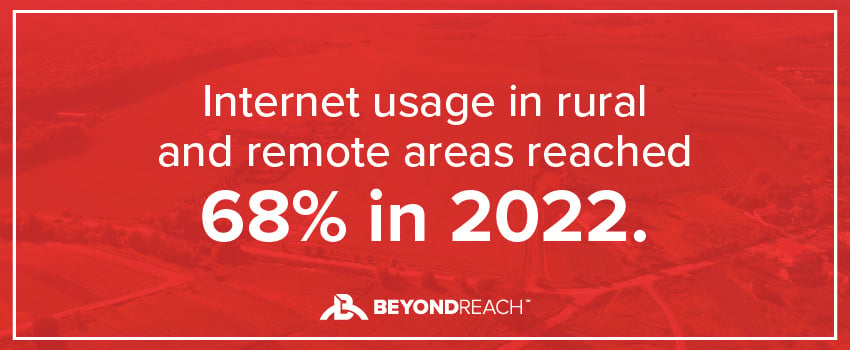
Remote Area Internet Services Trends and Predictions
Looking beyond 2023, we can see many initiatives and trends that will dramatically impact connectivity, including:
Internet for All
The U.S. government has made expanding broadband across the country a priority. Last September, the Biden-Harris administration announced it will put $502 million in funds toward high-speed internet access in remote and rural locations to bring broadband to more underserved U.S. communities. As this initiative is rolled out over the coming years, we expect to see more opportunities for connectivity.
Securing the Agricultural Workforce
An estimated 66% of the world’s population will live in urban areas by 2050.3 With the reduced rural workforce, more agricultural and farming processes will likely be automated, resulting in an agricultural infrastructure dependent on AI and interconnectivity. Cybersecurity will have to be prioritized, as this connected IT environment could lead to challenges in securing food supply chains against cyber attacks.
A Focus on Sustainability
More service providers are leveraging renewable energy sources, including solar, water, and wind, to build and maintain networks. This is not only a major push towards meeting sustainability goals but also in delivering more connectivity solutions. Renewable energy sources can power infrastructure in areas where electricity isn’t available. For example, a solar-powered cell tower can offer connectivity in a remote area without electricity.
Connect Your Rural Business Customers With BeyondReach
While options for remote connectivity are steadily increasing, providing businesses in rural locations with high-speed internet can still be difficult. If you need to connect a business in a hard-to-reach or hard-to-serve area, BeyondReach can help. We’re experts in designing creative engineering solutions that solve even the toughest connectivity problems. Reach out today to request a quote.
Sources:
- https://www.itu.int/itu-d/reports/statistics/2022/11/24/ff22-internet-use-in-urban-and-rural-areas/
- https://www.ntca.org/sites/default/files/documents/2022-12/2022%20Broadband%20Survey%20Report%20%28FINAL%2011-28-22%29.pdf
- https://www.enisa.europa.eu/publications/enisa-foresight-cybersecurity-threats-for-2030
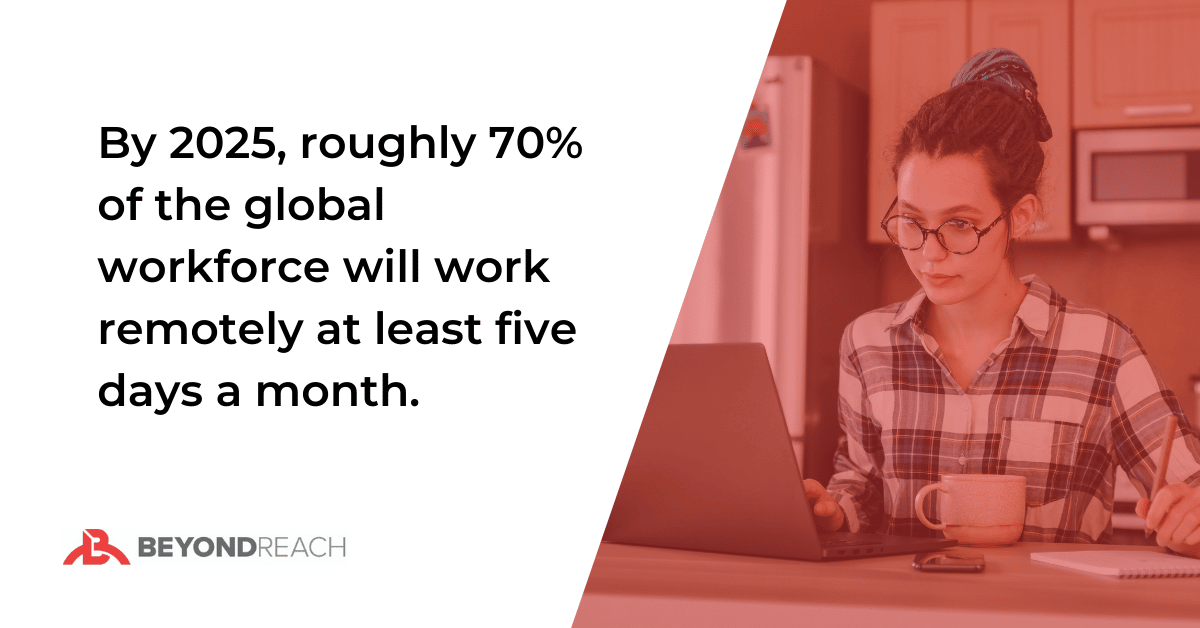

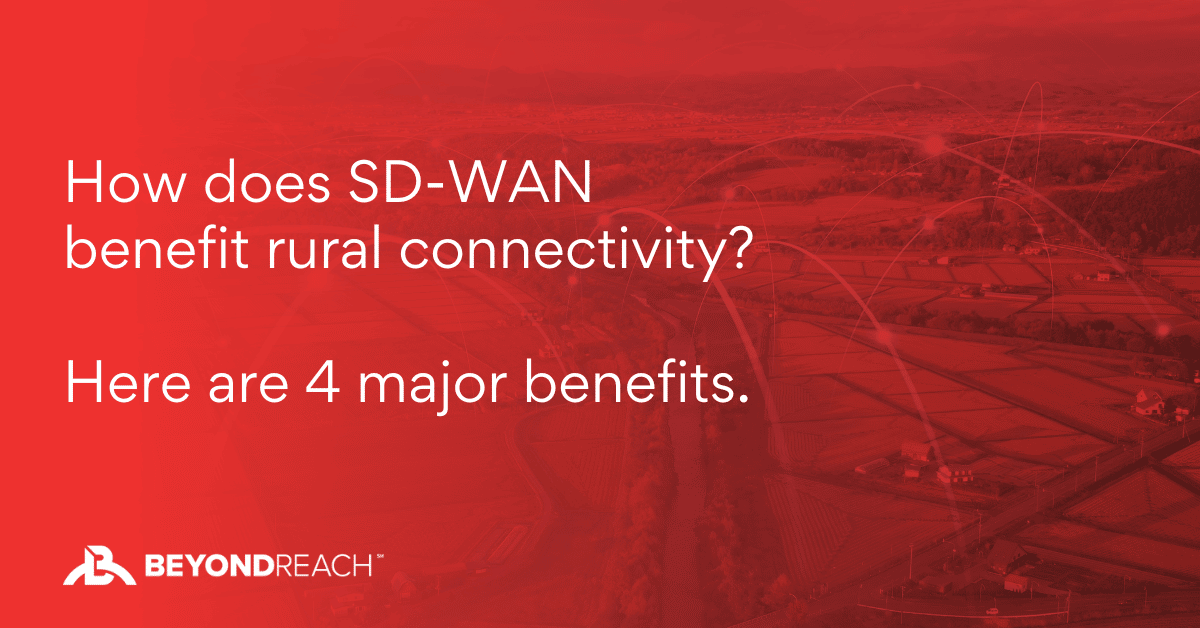



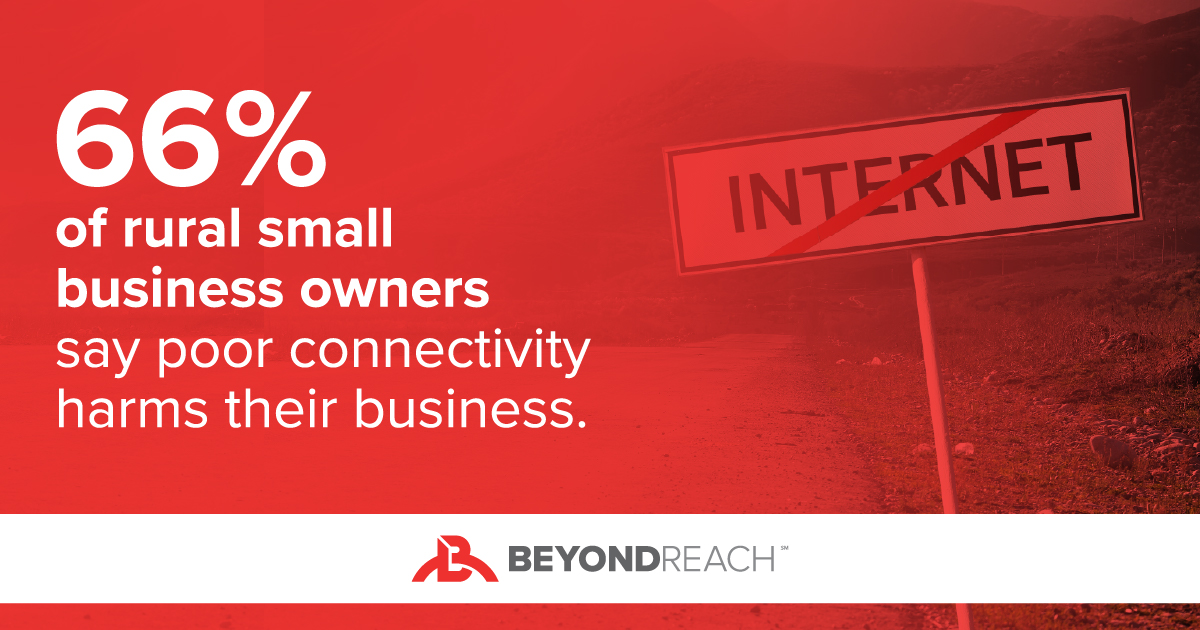

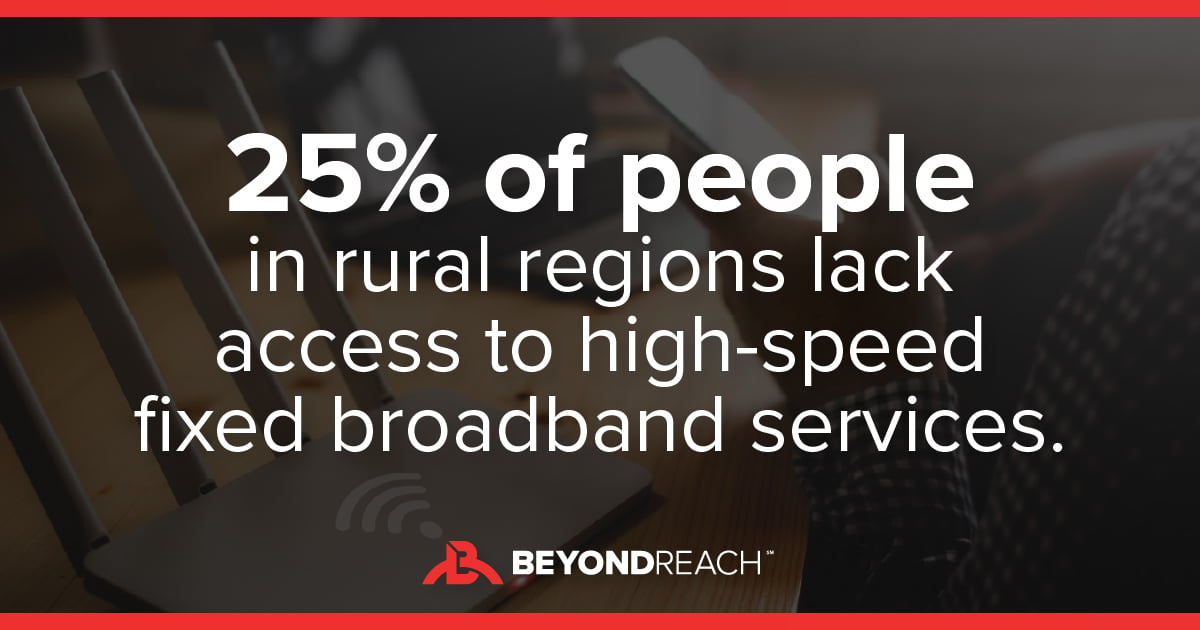

.png)